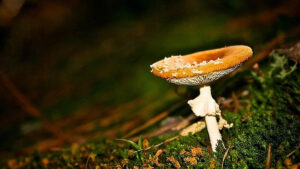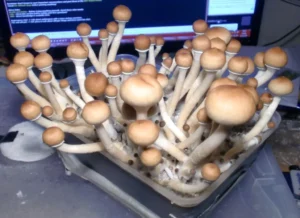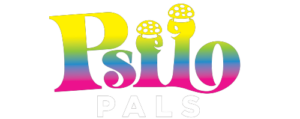Notable Elements
Psilocybin Overview: Magic mushrooms contain psilocybin, a psychoactive compound with potential mental health benefits but should be approached with caution.
Not a Recreational Drug: Despite misconceptions, magic mushrooms are not simply a recreational drug, and ongoing research explores their therapeutic potential.
Psychoactive Effects: Psilocybin induces perception alterations, subjective experiences, neurophysiological changes, and potential therapeutic benefits, along with associated risks.
Risks and Precautions: Acute adverse reactions, impaired judgment, worsened mental health conditions, confusion with toxic mushrooms, HPPD, legal issues, and societal consequences are potential risks.
Misuse Consequences: Misusing psilocybin mushrooms can lead to ‘bad trips,’ accidents, worsened mental health, confusion with toxic mushrooms, HPPD, legal troubles, and societal consequences.
Treatment Options: Although physical addiction to psilocybin is rare, talk therapy, client-centered counseling, contingency management, mindfulness practices, peer support, and medical therapy are potential treatments.
Psilocybin Misuse Statistics: Statistics show higher prevalence among young adults, with educational levels inversely related to misuse frequency. Demographic analyses remain limited.
Treatments for Psilocybin Addiction: Talk therapy, client-centered counseling, contingency management, mindfulness practices, peer support, medical therapy, and assisted psychotherapy are potential treatments.
Complex Substance: Psilocybin mushrooms have unique effects and potential risks. Responsible use, dosage awareness, and consultation with medical professionals are essential.
Final Caution: While psilocybin mushrooms may not pose the same dangers as other substances, they still carry potential for psychological addiction. Dosage, health conditions, and expert consultation are crucial for safe consumption.
Introduction
There has been a lot of buzz about psilocybin— the psychoactive compound found in magic mushrooms to treat various mental disorders. Still, ongoing researches enlighten the positive side. However, they are conducted under controlled environments by experts. Magic mushrooms have been regarded as a recreational drug by many people, but these examinations are merely an altercation.
So, before using Psilocybin, ask yourself— Are magic mushrooms addictive? Before you begin, let us see what magic mushrooms are, their effects, and what precautions to take.

What are psilocybin mushrooms or shrooms?
Magic mushrooms, also known by their scientific name Psilocybe cubensis, also referred to as magic mushrooms, shrooms, hallucinogenic mushrooms, or psychedelic mushrooms belong to a group of fungi containing psychoactive compounds called indole alkaloids, notably psilocybin and its derivative psilocin. These substances possess hallucinogenic properties when consumed, altering perception, cognition, emotion, and behavior.
There are over 200 species of mushrooms containing psilocybin, with Psilocybe cubensis being one of the most well-known and widely distributed varieties. They grow in humid environments, grasslands, forests, and manure-rich soil worldwide.
Magic Mushrooms Effects
Consuming psilocybin mushrooms results in diverse effects that encompass both subjective experiences and measurable outcomes. Here, we discuss the main categories of impacts resulting from the ingestion of this class of psychedelics:
Effects: Perceptional alterations: Visual distortions, auditory hallucinations, altered time perception, and synesthesia.
Subjective experiences: Strong emotions, increased empathy, spiritual insights, mindfulness, creativity, and ego dissolution.
Neurophysiological changes: Reconfigured brain connectivity, diminished default mode network activity, and engagement of serotonin 2A receptors.
Behavioral outcomes: Improved well-being, potentially therapeutic benefits for various mental health conditions.
Risks and Precautions: Acute adverse reactions (“bad trips”): Anxiety, fear, dysphoria, delusions, or temporary psychosis. Impaired judgment, perception, and motor skills: Increased accident risk, especially with machinery or vehicles. Worsen pre-existing mental
Health conditions: Use with caution if you have schizophrenia, bipolar disorder, depression, or anxiety.
Confusion from mistaken identity: Misidentification with toxic look-alike mushrooms can lead to serious illness or death.
Hallucinogen Persisting Perception Disorder (HPPD): Recurring visual disturbances after prolonged or excessive use.
Legal problems: Psilocybin is illegal in many countries, leading to arrest and prosecution.
Societal and personal consequences: Relationship strain, educational or occupational disruptions, financial burden, and compromised decision-making.
Understanding the range of effects produced by psilocybin mushrooms helps inform safe practices, public policy decisions, and clinical applications regarding their use.
ALSO READ – Safe Mushroom Foraging Techniques for Different Environments.
What will happen If you misuse Psilocybin mushrooms?
While psilocybin mushrooms are generally regarded as relatively safe compared to other illicit substances, improper use or mismanagement can lead to several risks and potential harms. There are significant dangers of misusing psilocybin mushrooms. One such risk includes acute adverse reactions, colloquially known as ‘bad trips’, which entail severe anxiety, fear, dysphoria, delusions, or temporary psychosis during the psychedelic experience.
Moreover, impairments in judgment, perception, motor skills, and reaction times induced by psilocybin can augment accident proneness, particularly concerning vehicle or machinery operation. Furthermore, mishandling psilocybin mushrooms can intensify preexisting psychiatric conditions, such as schizophrenia, bipolar disorder, major depressive disorder, or anxiety disorders. Confusion from mistaken identity presents yet another concern since toxic look-alike mushrooms proliferate in nature, and amateur collectors may erroneously gather them instead of psychoactive variants, culminating in grave illness, organ injury, or lethal outcomes.
Hallucinogen Persisting Perception Disorder (HPPD) constitutes another possible consequence arising from extended or excessive psilocybin consumption, manifesting as recurrent, unexpected visual disturbances adversely affecting everyday functionality and general well-being.
Breaking federal regulations governing psilocybin mushrooms in multiple nations, including the US, Canada, Australia, and vast swathes of Europe, can lead to arrest, prosecution, and incarceration. Societal integration suffers as problematic psilocybin use erodes relationships, obstructs educational or occupational progress, and disrupts routine tasks.
Also, monetary burdens emerge as users obtain psilocybin through smugglers. Lastly, chronic psilocybin use causes compromised decision-making. To save yourself, get knowledge, be vigilant and responsible.

Psilocybin Mushrooms Misuse Statistic
Psilocybin addiction studies reveal that forming a dependency on this substance is exceptionally rare, attributed mainly to its weak tendency to generate conventional withdrawal symptoms. Still, some chronic users may have a desire to keep using it even when encountering bad consequences.
Recent statistics on psilocybin mushroom misuse in the US and Canada indicate that young adults aged 18-25 have the highest prevalence of psilocybin usage, with males and females showing comparable interest. Limited data ties psilocybin misuse exclusively to specific age ranges. Education level appears inversely related to psilocybin misuse frequency, whereas ethnicity reveals few notable variations. Regional differences in acceptance, legislation, enforcement, and availability drive local psilocybin consumption profiles. However, detailed demographic analyses of psilocybin addiction remain limited, and additional research identifies at-risk population segments accurately.
What are the treatments for Psilocybin addiction?
Psilocybin isn’t very addictive physically, so standard treatment models for substance abuse may not work for it. Listed below are some helpful treatments for psilocybin addiction:
1. Talk Therapy: Working individually, in groups, or with families allows for exploring emotional difficulties, trauma, or beliefs fueling destructive psilocybin habits. Dialogue helps individuals develop better coping skills, understand their thoughts, and prevent relapses.
2. Client-Centered Counseling: Methods like Motivational Interviewing assist clients in finding inner motivation, changing mixed feelings, reconciling behaviors with goals, and building dedication for lifelong recovery.
3. Contingency Management: Using rewards to meet targets like staying clean or going to appointments promotes discipline and outside accountability for change.
4. Mindfulness Practices: Activities such as meditation, yoga, and body scan techniques teach presence, kindness, calmness, and balance, helping handle difficult emotions, impulses, or cravings. Daily practice builds self-control, reduces stress, and boosts mental strength.
5. Peer Support Programs: Joining organizations like AA, NA, SMART Recovery, or online platforms enables interaction with others facing similar challenges. Story-sharing, meeting attendance, step completion, and sponsorship spread hope, togetherness, and joint wisdom.
6. Medical Therapy: Even though no medicine specifically treats psilocybin addiction, doctors might recommend medicines for related symptoms like anxiety, sadness, or sleeplessness. Antidepressants, calming pills, or mood balancers are utilized carefully and checked by experts.
7. Assisted Psychotherapy: New research looks at guided psilocybin sessions in controlled clinic settings to cure various substance use disorders. Skilled assistance and follow-up psychotherapy seek meaningful improvements, revealing concealed truths, and accelerating healing.
Choose ideal treatments considering individual requirements, tastes, and situations after a thorough assessment measuring the severity, complexity, and context of psilocybin addiction.
**To be noted- Magic mushrooms are complex substances with unique effects and potential risks. Use them responsibly, and always consult with a medical professional before using them, especially if you have health conditions.
Final thoughts!
Psilocybin mushrooms do not share the same level of danger as other hallucinogenic substances like MDMA, etc. Yet, they still bear the potential for psychological addiction. So, keep an eye on dosage and health conditions. Talk to experts and medical professionals for safe consumption.
Those who have psychotic disorders need to be extra cautious when dealing with magic mushrooms, as they may amplify hallucinations and psychotic activity. Be Safe!

Hi! I’m Jacob Hawthorne, a passionate medical student dedicated to exploring the fascinating world of psychedelics, particularly magic mushrooms (commonly known as shrooms). With a deep interest in their therapeutic potential and profound effects on the human mind, I aim to provide accurate and evidence-based information about shrooms in the Canadian context.

